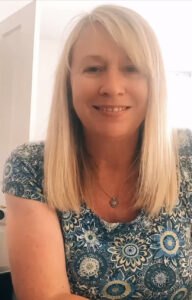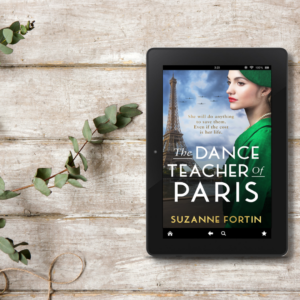 When I first started out writing, my novels were all contemporary, so I didn’t need to do a great deal of research as most of the things I wrote about were within my own experience. However, when I moved into writing historical fiction and, in particular, the Second World War, research became one of the key elements. With so much information out there, it was important that I got my facts right.
When I first started out writing, my novels were all contemporary, so I didn’t need to do a great deal of research as most of the things I wrote about were within my own experience. However, when I moved into writing historical fiction and, in particular, the Second World War, research became one of the key elements. With so much information out there, it was important that I got my facts right.
Prior to this point in my writing, I had never been much of a historian. I moved into historical fiction by accident really, when my editor wanted me to expand on the backstory of one of my characters. I wasn’t sure if I could do it at first. Researching the Second World War seemed a huge task but the internet, friends, family, colleagues and the local library/bookstore have all been my assistants in helping me in this area.
Most of my novels have been partly set in France – a country that has been close to my heart for many years. Me and my husband first started visiting France in the early 90s and fell in love with the country and culture, so much so, that in 2003 we bought a cottage of our own to renovate in the Morbihan department of Brittany.
 Little did I know back then how the area would influence and inspire my writing. Since then, I have found a wealth of information, a lot of which is widely known and many things that are smaller more personal stories of events during the occupation and the efforts of the local French Resistance who fought to disrupt the German war effort as much as possible, proving invaluable in the lead up to D-Day and beyond.
Little did I know back then how the area would influence and inspire my writing. Since then, I have found a wealth of information, a lot of which is widely known and many things that are smaller more personal stories of events during the occupation and the efforts of the local French Resistance who fought to disrupt the German war effort as much as possible, proving invaluable in the lead up to D-Day and beyond.
One of my research trips in Brittany took me to the Musée de la Résistance Bretonne in Saint-Marcel. It is, in fact, built of the very site that was once woodland where the local resistance group lived, trained, organised their attacks from and saw actual fighting as Brittany was liberated after the D-Day Landings.
Some of the displays within the museum have recreated scenes of the fighting as well as what every-day life was like under the occupation. All the displays are very detailed. There are some personal accounts, and these helped greatly to the authenticity of what I was writing, rather than just relying on well-documented war facts.
 As with so many villages and towns within the area, memories of the war are never far away. On the edges of a village near to our cottage, is a small stone cross on the side of the road with the names of three local men engraved who were captured and executed by the Germans for being part of the Resistance. I have always felt a great sadness when I pass this memorial and initially it was hard to find out any information about the local men but over time this has become recorded online. Their personal stories have stayed with me and although not directly recounted in my writing, I hope I have managed to include the sentiment and acknowledge the sacrifice made by so many men and women in Brittany during the occupation.
As with so many villages and towns within the area, memories of the war are never far away. On the edges of a village near to our cottage, is a small stone cross on the side of the road with the names of three local men engraved who were captured and executed by the Germans for being part of the Resistance. I have always felt a great sadness when I pass this memorial and initially it was hard to find out any information about the local men but over time this has become recorded online. Their personal stories have stayed with me and although not directly recounted in my writing, I hope I have managed to include the sentiment and acknowledge the sacrifice made by so many men and women in Brittany during the occupation.
Book link: https://bit.ly/3Z0ECxk
